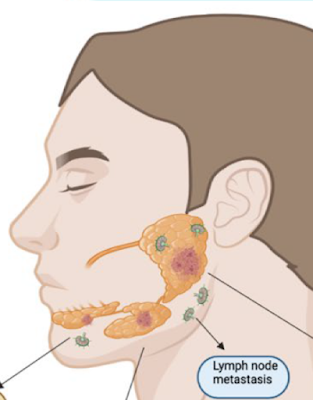Hormone Therapy for Parotid Cancer
What is Hormone Therapy?
Hormone therapy is a type of cancer treatment that involves using hormones or hormone-blocking drugs to slow down or stop the growth of cancer cells. Hormones are chemicals produced by the body that regulate various functions, including growth and development. Some types of cancer, including breast and prostate cancer, are hormone-sensitive, which means that they rely on hormones to grow.
How Does Hormone Therapy Work?
Hormone therapy works by blocking the production or action of hormones that promote the growth of cancer cells. This can be done in a variety of ways, including:
- Blocking the production of hormones in the body
- Blocking the action of hormones on cancer cells
- Removing the organs that produce hormones
Types of Hormone Therapy
There are several types of hormone therapy that may be used to treat parotid cancer, including:
- Gonadotropin-releasing hormone (GnRH) agonists
- Aromatase inhibitors
- Anti-androgens
- Estrogen receptor modulators
Benefits of Hormone Therapy for Parotid Cancer
Hormone therapy may be beneficial for some patients with parotid cancer, especially those whose cancer is hormone-sensitive. Benefits of hormone therapy may include:
- Slowing down or stopping the growth of cancer cells
- Reducing the size of tumors
- Preventing the spread of cancer to other parts of the body
- Reducing the risk of recurrence
Drawbacks of Hormone Therapy for Parotid Cancer
While hormone therapy may be beneficial for some patients with parotid cancer, it also has some drawbacks. Drawbacks of hormone therapy may include:
- Side effects, such as hot flashes, nausea, and fatigue
- Hormone resistance, where the cancer cells become resistant to the effects of the hormones
- Increased risk of other health problems, such as osteoporosis and heart disease
FAQs
What is parotid cancer?
Parotid cancer is a rare type of cancer that affects the parotid gland, which is located in front of the ear.
What are the treatment options for parotid cancer?
Treatment for parotid cancer typically involves surgery, radiation therapy, and chemotherapy. Hormone therapy may also be an option in some cases.
How does hormone therapy work?
Hormone therapy works by blocking the production or action of hormones that promote the growth of cancer cells.
What are the benefits of hormone therapy for parotid cancer?
The benefits of hormone therapy may include slowing down or stopping the growth of cancer cells, reducing the size of tumors, preventing the spread of cancer to other parts of the body, and reducing the risk of recurrence.

